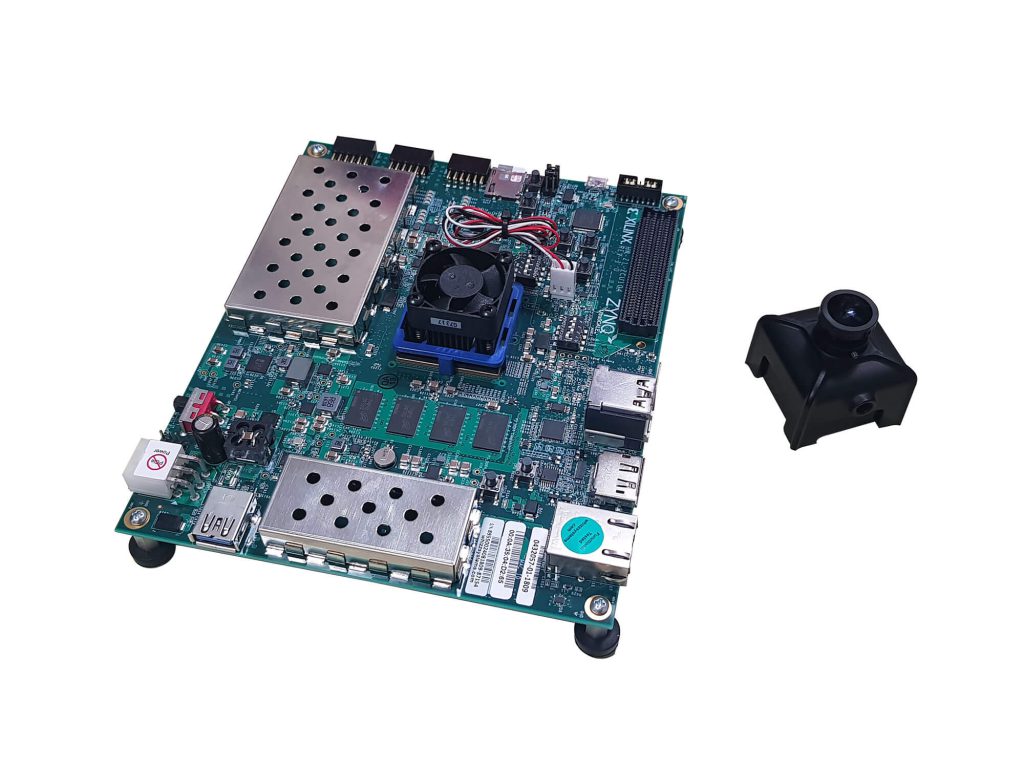With reference to the Xilinx’s reVISION™ Stack using See3CAM_CU30 blog to evaluate e-con’s See3CAM_CU30 with the reVision Stack of Xilinx, now our camera is part of Xilinx Zynq UltraScale+ MPSoC ZCU104 Evaluation Kit. The customers can now evaluate the camera performance along with the Xilinx’s reVision Stack.

Following are the steps to evaluate the Optical Flow demo along with the e-con’s See3CAM_CU30 camera.
* Download the reVisionStack from here.
* Refer to the Xilinx’s Gettting Started Guide for the board setup.
To run the Optical flow demo:
The configuration is for the DP display controller
* Copy the contents of the folder (zcu104_rv_ss/sd_card/optical_flow) to the SD-CARD
* Boot the board using the SD-CARD
* Once the boot is done, run the following commands
$ cd /media/card
$ cp libopticalflow.so /usr/lib
$ cp libgstsdxopticalflow.so /usr/lib/gstreamer-1.0
$ cp libgstsdxbase.so /usr/lib/gstreamer-1.0
$ cp libgstsdxallocator.so /usr/lib/gstreamer-1.0
$ video_cmd -S
VIDEO SOURCE ID VIDEO DEVNODE
HDMI Input 0 /dev/video2
USB Webcam 1 /dev/video4
Virtual Video De 2 /dev/video0
$ video_cmd -s 1 -i 1920×1080@UYVY -X
$ video_cmd -d 0 -o 1920×1080@UYVY &
Ignore the error message ERROR: Query DV timings failed: Link has been severed
$ gst-launch-1.0 v4l2src device=/dev/video4 io-mode=dmabuf ! “video/x-raw, width=1920, height=1080, format=UYVY” ! sdxopticalflow filter-mode=1 ! queue ! kmssink driver-name=xilinx_drm plane-id=26 sync=false
About Optical Flow
The Optical Flow algorithm uses two successive images in time, and calculates the direction and magnitude of motion at every pixel position in the image. The calculation is a simple implementation of the Lucas–Kanade method for optical flow estimation. The optical flow algorithm returns two signed numbers at each pixel position, representing up or down motion in the vertical direction, and left or right motion in the horizontal direction. The brightness of the false-color output, from black up to bright color, indicates the magnitude of the motion, and the color indicates the direction(color green means a pixel is moving to the left).




